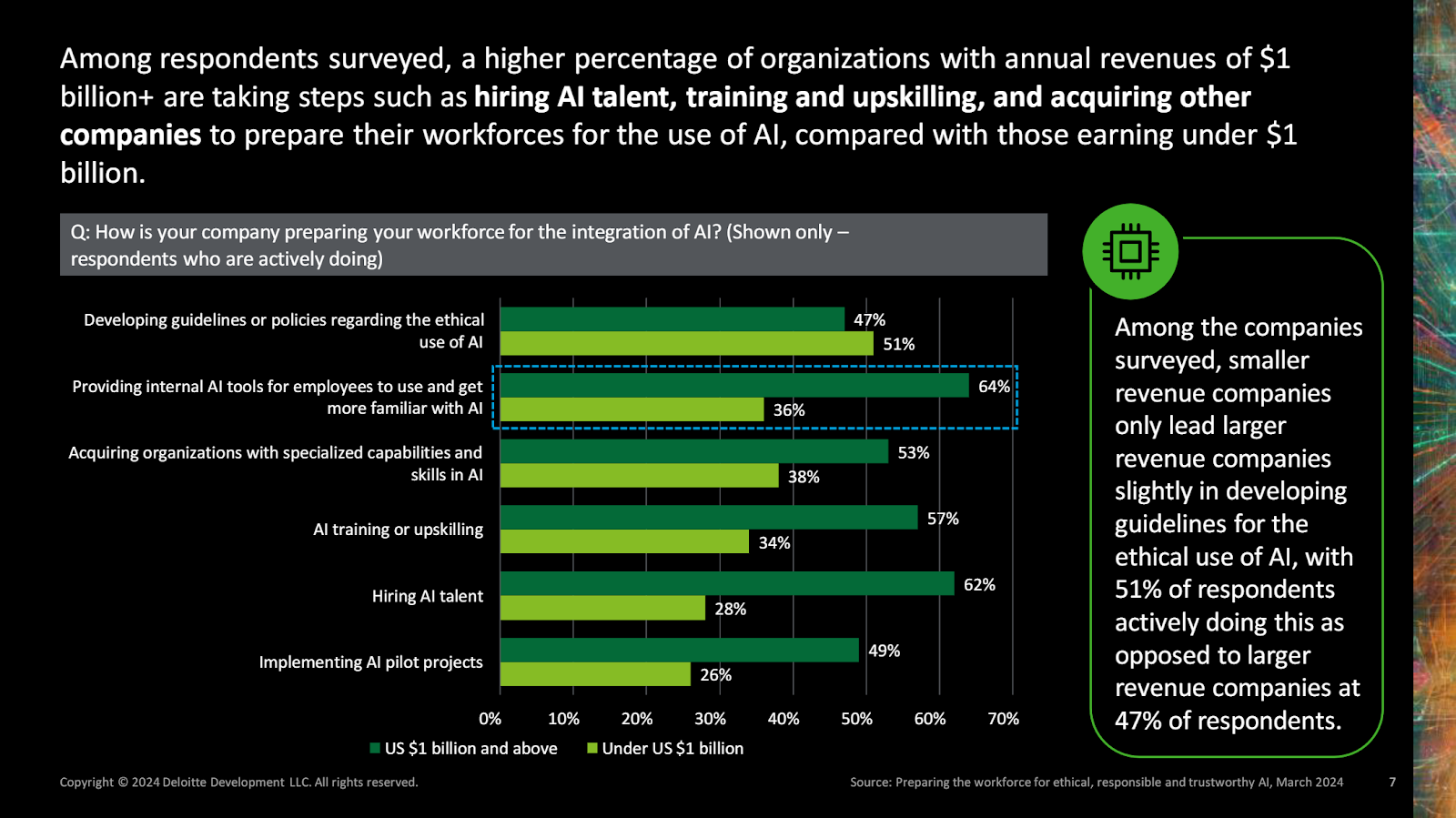Everybody has some kind of an opinion regarding the manner in which AI might end up impacting our lives in the near to distant future. Suffice it to say that most of these opinions are thoroughly on the negative end of the spectrum, and companies are no different.
While there are many benefits to the rise of AI, it bears mentioning that it also brings its fair share of risk to the table. As a result of the fact that this is the case, many companies are looking to employ specialists who can understand these risks and potentially mitigate them at the end of the day.
With all of that having been said and now out of the way, it is important to note that these roles aren’t exactly the same as Chief AI Ethics Officers. C-Suite roles are just of the tip of the iceberg, with ethics researchers, compliance officers, and analysts for technology policy all seeing a rise in demand as well.
Based on a recent survey conducted by Deloitte, 49% of companies have created guidelines focusing on the ethical use of AI. 37% are planning to roll these guidelines out in the near future, and the board of directors is involved in 52% of the decisions surrounding the ethical use of AI.
What's more is that 45% of the companies that responded to this survey stated that they’re retraining their employees so that they are better able to contend with this ever shifting landscape than might have been the case otherwise. On top of all of that, 44% are looking for new employees to fill AI related roles because of the fact that this is the sort of thing that could potentially end up keeping them in lockstep with competitors.
This is an extremely specialized field, one that will likely see tremendous growth in the coming years. Government regulations are right around the corner, and many of these new jobs will have something or the other to do with the creation of new and better processes that can keep these regulations at the forefront of the company’s business dealings and operations pertaining to AI.
Take a look at the charts below for more insights:
Read next: How to Accept Bitcoin Payments: Your Complete Guide
While there are many benefits to the rise of AI, it bears mentioning that it also brings its fair share of risk to the table. As a result of the fact that this is the case, many companies are looking to employ specialists who can understand these risks and potentially mitigate them at the end of the day.
With all of that having been said and now out of the way, it is important to note that these roles aren’t exactly the same as Chief AI Ethics Officers. C-Suite roles are just of the tip of the iceberg, with ethics researchers, compliance officers, and analysts for technology policy all seeing a rise in demand as well.
Based on a recent survey conducted by Deloitte, 49% of companies have created guidelines focusing on the ethical use of AI. 37% are planning to roll these guidelines out in the near future, and the board of directors is involved in 52% of the decisions surrounding the ethical use of AI.
What's more is that 45% of the companies that responded to this survey stated that they’re retraining their employees so that they are better able to contend with this ever shifting landscape than might have been the case otherwise. On top of all of that, 44% are looking for new employees to fill AI related roles because of the fact that this is the sort of thing that could potentially end up keeping them in lockstep with competitors.
This is an extremely specialized field, one that will likely see tremendous growth in the coming years. Government regulations are right around the corner, and many of these new jobs will have something or the other to do with the creation of new and better processes that can keep these regulations at the forefront of the company’s business dealings and operations pertaining to AI.
Take a look at the charts below for more insights:
Read next: How to Accept Bitcoin Payments: Your Complete Guide









